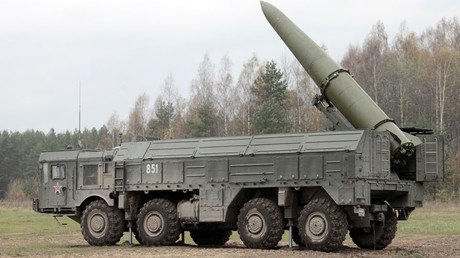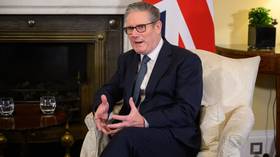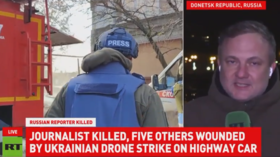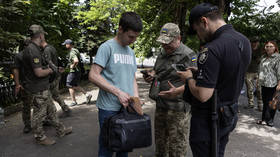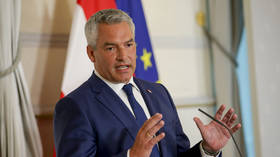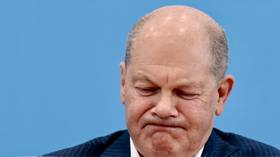German plans to lead NATO buildup ‘big mistake’ on anniversary of 1941 Nazi invasion – ex-Сhancellor
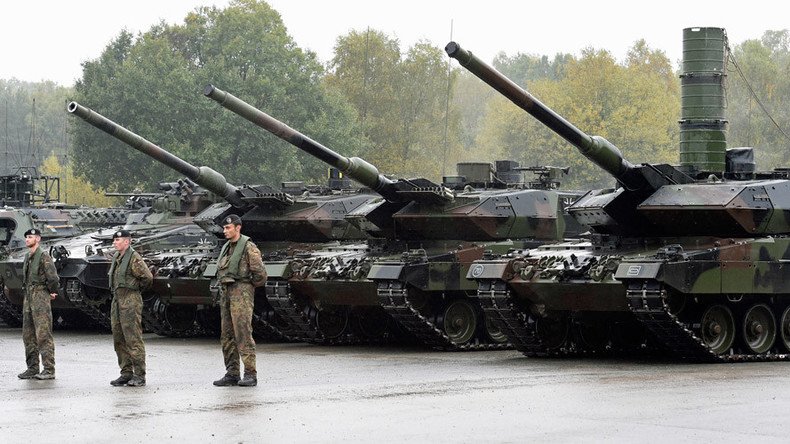
Berlin is making a “serious mistake” by planning to lead NATO’s Eastern European buildup, given that it comes on the anniversary of the 1941 Nazi invasion of the Soviet Union, said a former German chancellor as cited by local media.
Former German Chancellor Gerhard Schroeder has called for a drastic change in European policy towards Russia. Instead of seeking for a major role in NATO’s buildup against Russia in Eastern Europe and in the Baltics, Berlin should do its utmost to improve relations with Moscow.
It was therefore a “serious mistake” that Germany assumed leadership over NATO troops near Russia’s borders “right on the [75th] anniversary of the German attack on the Soviet Union in June 1941,” Schroeder said at a German Chamber of Commerce event in Austria, as cited by the Salzburger Nachrichten newspaper.
Moscow calls NATO buildup in E. Europe ‘unjustified’ as largest drills since Cold War kick off https://t.co/4IThutir73
— RT (@RT_com) June 6, 2016
The date of the Nazi invasion of Soviet Union, June 22, is marked in Russia annually to pay tribute to war victims and Red Army soldiers killed or missing in action.
Schroeder has also said that “overall, the EU needs Russia and Turkey in terms of security policy,” once again showing discontent with Washington, which sees Moscow’s “assertiveness” as a threat to NATO’s Eastern European members.
If the German government wants the sanctions to be prolonged, “it must not be afraid of explaining this to its population,” Schroeder asserted.
In 2014, Crimea seceded from Ukraine following a coup in Kiev, and chose to be reunified with Russia after a referendum. Following the events, the EU imposed economic sanctions on Russia, which targeted major energy corporations, state-owned banks and senior officials. Despite growing resistance inside the bloc and repeated calls from European businesses to lift the sanctions, it is expected that they will remain in place for at least another six months.
As part of the Eastern European deployment, NATO plans to station four battalions of up to 1,000 troops each in Poland, Lithuania, Estonia, and Latvia. The US is likely to command two battalions, with Britain and Germany taking another each. The German contribution would also include setting up command structures as well as providing logistical support and cyber defense.
The deployment aside, NATO is training thousands of troops in a number of exercises that take place near Russian borders.
Earlier in June, the largest war games in Europe since the Cold War called Anaconda 2016 started in Poland. They involve over 31,000 troops and thousands of combat vehicles from 24 countries, and it is for the first time since the Nazi invasion of Poland that German tanks have crossed the country eastwards.
The scenario so far included an airdrop of 1,130 parachutists over the northern Polish city of Torun on Tuesday, involving 500 US and 230 British troops, as well as engineers building a bridge to carry 300 vehicles over the Vistula River and a night-time helicopter “assault” of 35 aircraft.
Other regional drills, such as BALTOPS and Saber Strike, are taking place in the Baltic simultaneously with Anaconda 2016.
Moscow says it will seek an adequate response to increased NATO presence in close proximity to Russian borders, forming two more army divisions in the west and one in the south. Top officials maintain that it is rather NATO’s “practical actions,” not the bloc’s existence as an organization that poses a threat to Russia.
